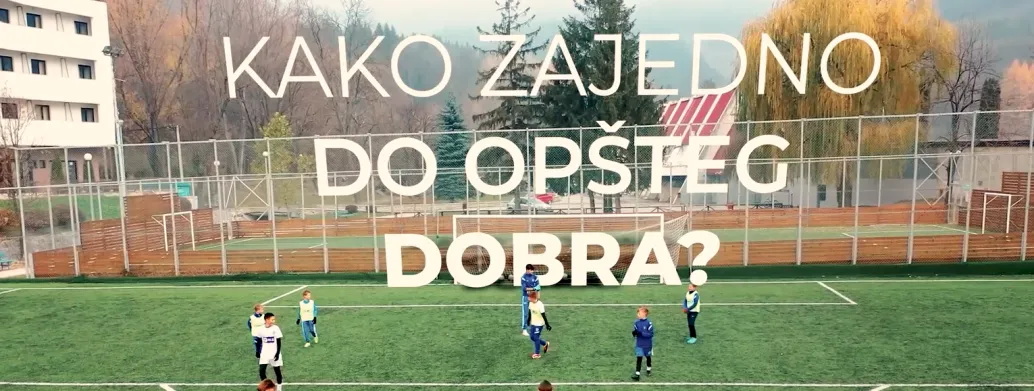In today’s fast-paced and often polarized world, phrases like “togetherness” and “solidarity” may sound like worn-out slogans. However, beneath the surface of these seemingly simple words lies a powerful concept that is of essential importance for the prosperity and stability of every society – social cohesion.
One of the sessions during our “Local Dialogues” was dedicated precisely to this topic, where the introductory lecture was given by professor at the Faculty of Political Sciences of the University of Montenegro, Prof. Dr. Danijela Vuković-Ćalasan, who reminded us of the complexity and multi-layered nature of this term. Through interactive discussion and presentation, participants had the opportunity to delve deeper into what actually constitutes social cohesion and why it is the foundation of healthy social relations.
Social cohesion: More than mere coexistence
If we tried to give the simplest definition, we could say that social cohesion represents the way in which members of a society function and live together. However, this definition only scratches the surface. Social cohesion is much more than merely tolerating each other; it implies active participation, mutual trust and a sense of shared belonging.
As was pointed out during the lecture, different definitions of social cohesion share key elements. This includes:
- Positive attitude towards diversity and trust among people: A socially cohesive community values diversity and builds bridges of understanding instead of walls of prejudice. Trust is the foundation on which all other positive relationships are built.
- Sense of belonging to the community: When individuals feel like part of something bigger than themselves, when they share common values and goals, their commitment to the well-being of the whole becomes stronger.
- Perception that society is fair to all its members: The sense of fairness and equal opportunities is key to building trust in institutions and to reducing social tensions. When people believe that the system functions fairly, they are more willing to contribute to the common good.
- Desire and readiness to participate in public/political life: Active citizenship is a vital part of social cohesion. When people feel empowered to express their opinions and participate in decision-making that concerns them, their connection with the community becomes stronger.
- Contribution to the development of society: A socially cohesive community encourages its members to actively work on its progress, whether through volunteer work, professional engagement or simply responsible behavior.
Bertelsmann Foundation: Three pillars of a cohesive society
The definition of social cohesion offered by the Bertelsmann Foundation further specifies the key aspects of this concept, dividing it into three interconnected pillars:
- Stable social relations: This pillar focuses on horizontal connectedness within society. It is measured by the strength of social networks that connect individuals and groups, the level of trust people have in each other and the degree of acceptance of diversity. Strong social ties act as a buffer in times of crisis and make cooperation easier.
- Positive connectedness between members and the community/state itself: This aspect emphasizes vertical connectedness, i.e. the relationship of individuals towards the community as a whole and its institutions. It is measured by the degree of identification of citizens with their country, trust in institutions, perception of justice and equal opportunities, as well as equal access to resources and services. When citizens trust their state and feel like an equal part of it, their readiness to contribute to its development also becomes stronger.
- Focus on the common good: This pillar refers to the behavior, activities and attitudes of members of society that show responsibility for others and for the community as a whole. It is reflected in the level of solidarity and readiness to help others, as well as in respect for social norms and rules. A society in which care for the common good prevails is more resilient and more capable of responding to various challenges.
Why is social cohesion important for all of us?
You might ask why this seemingly abstract concept should be important for every individual. The answer is simple: social cohesion is the foundation of a prosperous, stable and just society in which we all want to live.
- Economic prosperity: Socially cohesive societies are economically more productive. Trust makes business easier, cooperation encourages innovation, and reduced social inequalities lead to more stable growth. When everyone feels included and has equal opportunities, they are more likely to contribute to economic development.
- Social stability and security: Social cohesion reduces social tensions and conflicts. When people trust each other and feel belonging to the community, they are less likely to turn to violence or crime. The sense of justice and equality reduces frustrations and dissatisfaction.
- Better health and well-being: Research shows that people who live in more socially cohesive communities have better physical and mental health. Strong social ties provide support in difficult times and reduce the feeling of isolation.
- Strengthening democracy: Social cohesion is a prerequisite for a functional democracy. Active and engaged citizens who trust institutions and feel that their voice is heard make the democratic process stronger and more legitimate.
- Resilience to crises: Socially cohesive communities are more resilient to various crises, whether economic recessions, natural disasters or pandemics. Mutual solidarity and readiness for cooperation make it easier to overcome difficult times.
Montenegro on the path to strengthening social cohesion
Montenegro, as a multiethnic and multicultural country, has a special interest in strengthening social cohesion. Diversity is our wealth, but only with strong bonds of trust and mutual respect can that diversity be a source of strength, not division.
Work on improving social cohesion is a continuous process that requires the engagement of all actors – from state institutions, through the civil sector, to every individual. It is necessary to invest in education that promotes tolerance and understanding, to strengthen institutions so that they are fair and efficient, to encourage active citizenship and create opportunities for cooperation and networking among different groups in society.
The session on social cohesion reminded us of the importance of this concept and opened space for further discussion and concrete actions. Understanding what constitutes social cohesion and why it is important for all of us is the first step towards building a better and more inclusive society in Montenegro.
In times when we are facing numerous challenges, from economic uncertainty to social divisions, investing in social cohesion is not a luxury but a necessity. It is an investment in our common future, in a society in which we all feel safe, respected and as part of a whole. That is why it is important that we all understand and actively contribute to strengthening social cohesion – for the benefit of all of us.

 Crnogorski
Crnogorski
 English
English









